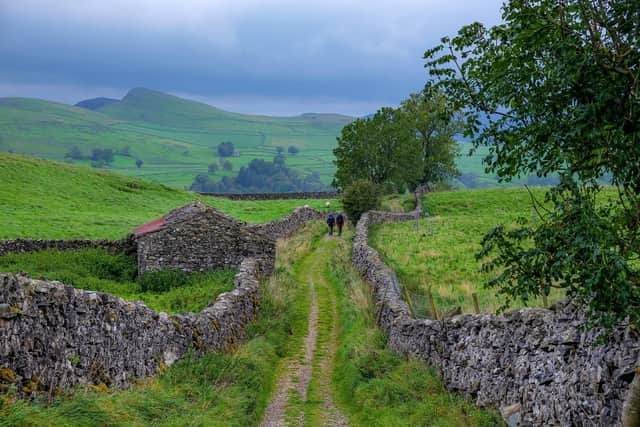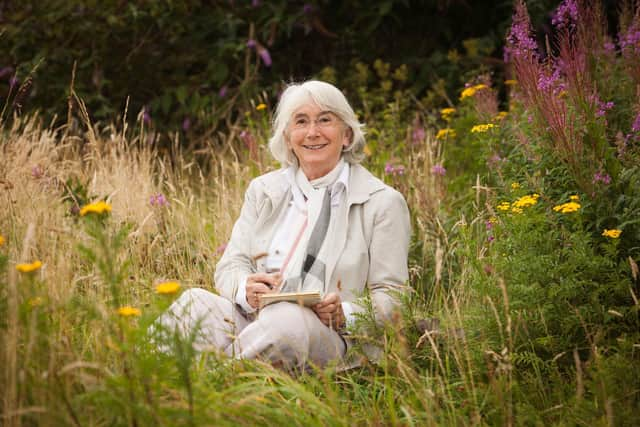Scientist and author Sarah Watkinson on her climate-themed novel and the vital role of fungi in the Yorkshire Dales
For, through years of research in the field of ecology, Dr Watkinson has found herself increasingly interested in the tiny things beneath our feet – the world of fungi. “Much of my work has really been about the invisible wildlife under our feet, the microscopic fungi that are hugely diverse,” she explains.
“There’s so many of them, more than we understand at the moment. Now, I look at the Dales or any landscape and I’m always aware of these things which are working together inside it to make it hang together.”
Advertisement
Hide AdAdvertisement
Hide AdScientific research has pointed to the vital role that fungi plays within the world’s ecosystems. Many act as decomposers, breaking down the bodies of plants and animals and recycling the nutrients they hold, making them available to other organisms. This process is said to be critical in maintaining healthy soil, as well as providing food for the array of bacteria and animals that call the soil their home.


Research published earlier this year also found that underground networks of fungi store over 13 gigatons of carbon around the world, equivalent to around a third of yearly global fossil fuel emissions. The discovery by a team of scientists, including at the University of Sheffield, indicates that fungi could be crucial in efforts to address climate change.
“Fungal mycelium is the vital infrastructure of all the beauty you see in the Dales,” Dr Watkinson says, “and yet we know so little about it and don’t think so much about it.”
Though this particular world was invisible to her as a child, Dr Watkinson was, as young as eight, struck by the beauty and diversity in the Dales countryside. She moved to Ilkley from London, travelling then each day between the town and Bradford for school, and witnessing from the bus window the rolling hills surrounding Wharfedale.
Advertisement
Hide AdAdvertisement
Hide AdAt Bradford Grammar, her interest in biology and chemistry went beyond what she was learning in class, as she sought to apply her education to an understanding of the rivers and moorland around her. And later, studying at the University of Cambridge, she focused on projects that would help her to learn more about the natural world in places around the Dales that were dear to her heart.


When it came to writing her first novel then, the Dales seemed like an obvious setting. “It’s a landscape I’m at home in,” she says simply. “I was such a lucky child, allowed to roam all over the moors by myself.”
Dr Watkinson’s book Native Soil is described as a tale of love, loyalty, and climate science. It is her first long-form piece of creative writing, having spent most of her career as a plant scientist at the University of Oxford, publishing scientific papers and academic books.
The tale follows a wealthy young widow, new to farming, and a TV environmentalist. One is rooted to the land and the other is a global adventurer and as their romance deepens, they discover that their views on conservation and climate change are not always in tune.
Advertisement
Hide AdAdvertisement
Hide AdThe book draws on the idea of being caught between two camps – a love of the landscape and a keenness to preserve and look after it; and a desire for economic growth, business and making money. Dr Watkinson, who lives in Oxford, hopes it will encourage people to think about environmental issues.
“Fiction should be fun to read and it should be transporting,” she says. “You should be living the lives of the characters, experiencing their ups and downs and feeling empathy with everybody.”
“[Environmental] matters are so important, now with climate change,” she continues. “Everybody has to understand and yet ideas like net zero can seem remote and hard to grasp. How does it affect us on the ground?”
She’s concerned about species extinction and habitat loss. “We’re losing so much and losing it so fast. People are not appreciating it, in spite of the work of people like David Attenborough. I think it still seems remote to many people, something that doesn’t affect them directly.”
But there is hope she says. “If you stop with pesticides and just allow nature to take its course, things come back…Nature is so forgiving, if only we can let it in.”
Native Soil is out now.
